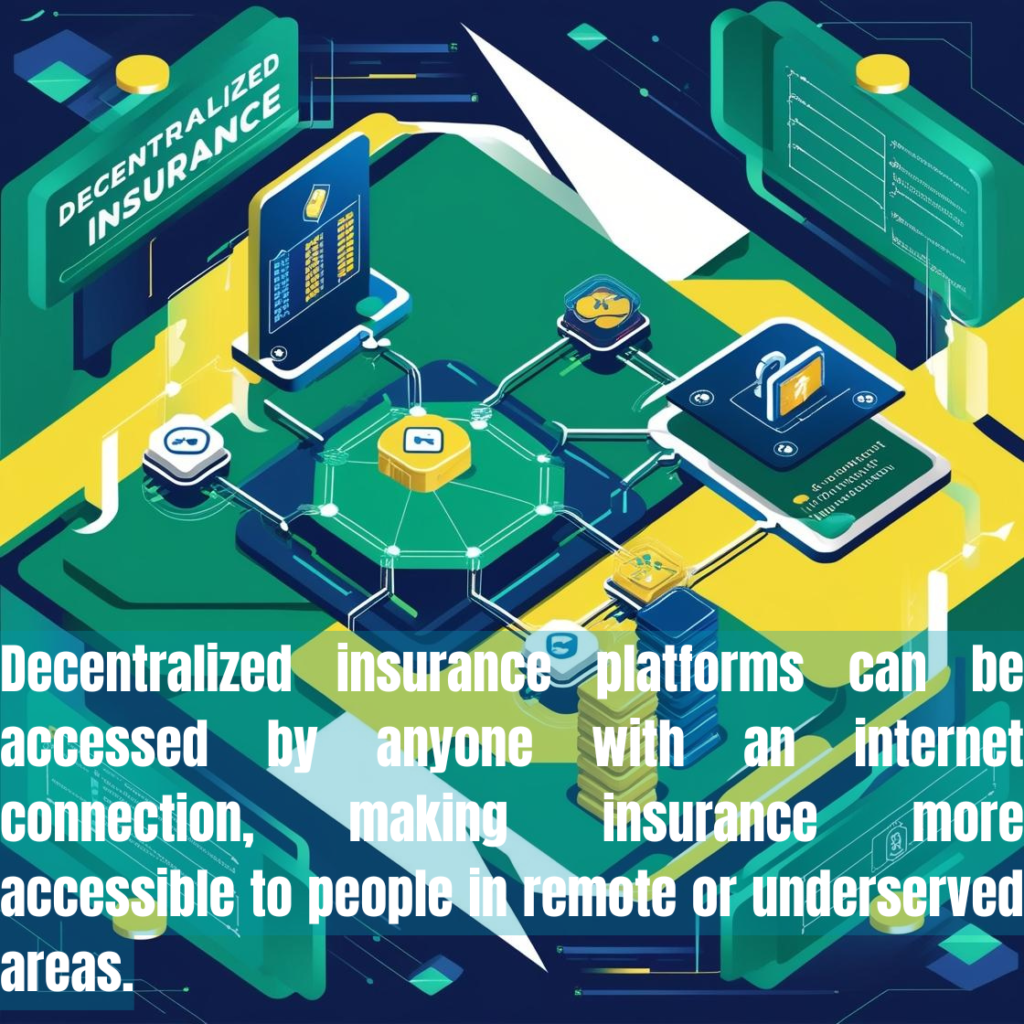
Insurance, a cornerstone of financial security, has long been plagued by inefficiencies, delays, and trust issues. However, the rise of decentralized insurance platforms using smart contracts is rewriting the rulebook. By harnessing blockchain’s transparent, secure, and immutable nature, these platforms are empowering individuals with fairer, faster, and more accessible insurance options.
The essence of decentralized insurance lies in removing intermediaries. Traditional systems rely on centralized entities to evaluate claims, which often leads to disputes, delays, and additional costs. By contrast, decentralized platforms automate these processes, enabling a seamless and trustless system that benefits both insurers and policyholders.
What Are Smart Contracts?
Programmers create smart contracts, digital agreements that execute specific actions when predetermined conditions are met. Unlike traditional contracts that require human intervention, these self-executing codes operate on blockchain networks, ensuring transparency, reliability, and immutability.
In the context of insurance, smart contracts automate tasks like claims verification and payouts. Imagine a traveler whose flight is delayed—once the delay is confirmed by an oracle (a trusted data source), the smart contract automatically triggers the insurance payout. No paperwork, no delays, just instant results.

How Decentralized Insurance Platforms Operate
Decentralized insurance platforms work on a trustless system powered by blockchain and smart contracts. Here’s how they fundamentally differ from traditional models:
- Premium Pools: Policyholders contribute premiums into decentralized funds governed by smart contracts.
- Claims Processing: Oracles feed real-time data (e.g., weather updates, medical reports) into the system. If the system verifies a claim condition, it triggers the payout instantly.
- Transparency: The blockchain logs every transaction, making fraud or manipulation nearly impossible.
This ecosystem eliminates middlemen, reduces administrative overhead, and delivers a more seamless insurance experience.
Blockchain’s Role in Revolutionizing Insurance
The adoption of blockchain technology isn’t just a trend—it’s a necessity for the evolution of insurance. Blockchain ensures:
- Immutability: The blockchain prevents tampering with data, safeguarding against fraudulent activity.
- Decentralization: Removing a single point of control ensures fairness and reduces systemic risks.
- Transparency: Policyholders and insurers alike can audit transactions and verify processes.
Blockchain’s inherent qualities address long-standing pain points in insurance, offering an unprecedented level of trust and efficiency.
Key Benefits of Decentralized Insurance Platforms
The shift to decentralized insurance brings several key advantages:
- Cost Savings: By automating processes, platforms cut out expensive intermediaries, reducing premiums.
- Faster Settlements: Claims processing times drop from weeks to minutes.
- Fraud Mitigation: Transparent blockchain records deter bad actors.
- Accessibility: Decentralized insurance reaches underserved populations, democratizing access to protection.
These benefits make decentralized insurance platforms not just a complement but a potential replacement for traditional systems.
Current Challenges in Decentralized Insurance
Like any disruptive innovation, decentralized insurance faces hurdles:
- Scalability: Current blockchain networks can struggle with high transaction volumes.
- Regulation: Governments are still catching up, leading to legal uncertainties.
- User Adoption: Educating the public about blockchain and smart contracts is a critical step.
Addressing these challenges is essential for decentralized insurance to achieve mainstream success.
Smart Contracts: The Core of Decentralized Insurance
Smart contracts act as the engine driving decentralized insurance. They handle:
- Automated Claims: Predefined rules ensure claims are settled without delays or disputes.
- Payout Accuracy: Real-world data triggers precise, tamper-proof payments.
- Fraud Prevention: Automation reduces opportunities for human error or manipulation.
By leveraging oracles, smart contracts gain access to real-world events, such as flight delays or natural disasters, ensuring payouts are fair and timely.
Use Cases Transforming Insurance with Decentralization
The versatility of decentralized insurance platforms is astonishing. Here are some transformative applications:
- Crop Insurance: Payouts for farmers automatically triggered by rainfall deficits.
- Travel Insurance: Instant compensation for delayed or canceled flights.
- Health Insurance: Streamlined claims processing without exposing sensitive medical data.
- Natural Disaster Relief: Automated payouts to affected regions based on real-time weather data.
These examples show the vast potential of decentralized insurance to improve lives and industries.
Conclusion: A New Era for Insurance
Decentralized insurance platforms, powered by blockchain and smart contracts, are fundamentally reshaping the insurance industry. By eliminating inefficiencies, enhancing transparency, and automating critical processes, these platforms address longstanding challenges of trust, accessibility, and fairness. The promise of faster settlements, reduced costs, and democratized access to insurance protection is driving this transformation, offering significant advantages to both policyholders and insurers.
While challenges such as scalability, regulation, and user adoption remain, ongoing advancements in blockchain technology and increased awareness of decentralized systems are paving the way for broader acceptance. As we overcome these obstacles, decentralized insurance has the potential to become the new standard, offering a future where insurance serves not just as a safety net but as a seamless, equitable, and efficient solution for all.
FAQs
What is decentralized insurance?
Decentralized insurance is a blockchain-powered model that automates insurance processes using smart contracts. It eliminates the need for intermediaries like brokers or traditional insurers. Instead, users pool funds on decentralized platforms to cover risks, and the system processes and executes claims automatically based on predefined conditions. This approach ensures transparency, reduces operational costs, speeds up payouts, and mitigates fraud, making insurance more efficient and accessible.
What is the difference between centralized and decentralized DLT?
Centralized DLT is controlled by a single authority, which manages transaction validation and data access. It offers privacy and strict governance, often suited for private enterprises. In contrast, decentralized DLT operates without a central authority, relying on network participants to validate transactions through consensus mechanisms like Proof of Work or Proof of Stake. Decentralized systems promote transparency and trust, making them ideal for public applications like Ethereum and Bitcoin.
How is blockchain used in insurance?
Blockchain streamlines insurance by automating claims and policy management through smart contracts, ensuring faster settlements and reduced costs. It prevents fraud with its tamper-proof ledger, offering transparent records of all transactions. Oracles feed real-world data, enabling automated payouts for events like flight delays or weather conditions. Blockchain also cuts operational costs by removing intermediaries, transforming the efficiency of insurance services.
What is the most used smart contract platform?
Ethereum is the most widely used smart contract platform, thanks to its flexibility, security, and large developer community. It enables the creation of decentralized applications (dApps) across industries like finance, gaming, and insurance. Its established ecosystem and robust network effect make it the preferred choice for many projects, although alternatives like Binance Smart Chain and Solana are gaining traction.


